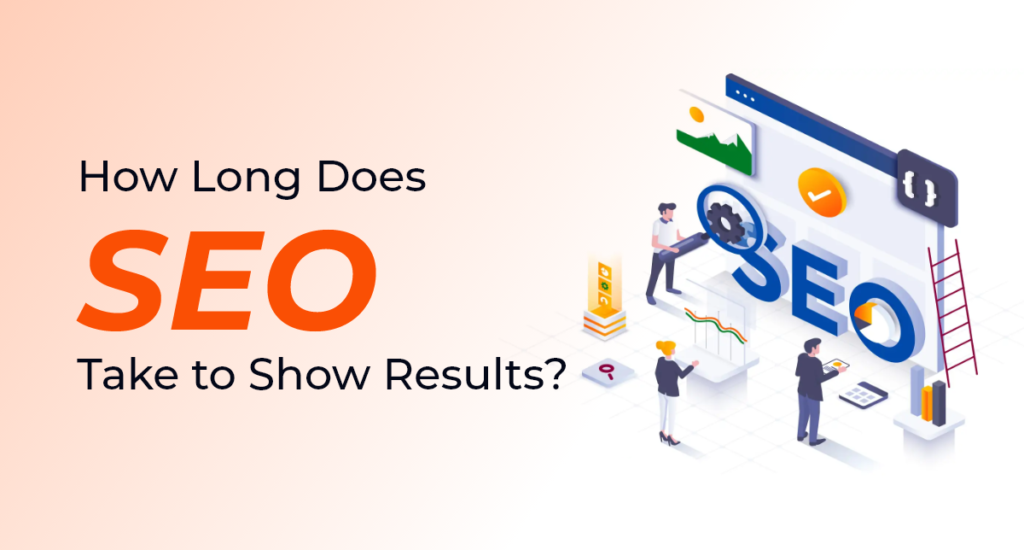How Long Does SEO Take to Show Results?

If you’ve just launched a shiny new website or started investing in SEO (Search Engine Optimization), you’re probably asking the million-dollar question:
“How long will it take before I see results?”
We get it. SEO can feel like planting a seed—you’re excited, hopeful, and sometimes impatient. But unlike paid ads, where you can flip a switch and get immediate traffic (for a price), SEO is more like growing a tree. You need time, care, and patience. In this post, we’ll break down
The Quick Answer: 4 to 12 Months
Most experts agree that SEO results typically start to show between 4 to 12 months. But keep in mind:
- “Results” may mean different things: increased rankings, more traffic, higher conversions, or all of the above.
- This is not a hard rule—some websites may see noticeable changes in as little as 3 months, while others may need over a year.
Let’s dive deeper into why SEO takes time and what influences your results.
Why Does SEO Take So Long?
1. Google Needs to Trust You
Search engines like Google have one main goal: to deliver the best possible results to users. They don’t hand out top rankings easily. Your website has to earn Google’s trust by showing:
- Quality content
- Technical soundness
- Positive user experience
- Authoritativeness in your niche
Trust isn’t built overnight. Google watches user behavior, content updates, and link-building efforts over time to determine if your site deserves to climb the ranks.
2. Competition Level
If you’re targeting highly competitive keywords like “best credit cards” or “digital marketing services,” you’ll face stiff competition from well-established giants. Competing with them will naturally take longer.
On the other hand, targeting long-tail, less competitive keywords (e.g. “best credit cards for college students 2025”) may deliver quicker wins.
3. Your Website’s Current Status
- Brand new websites: Generally take longer because they have no domain authority or backlinks.
- Existing websites with some SEO work: May see results faster if they’ve already built a foundation.
- Websites with penalties or technical issues: Might need extra time to fix problems before climbing the rankings.
4. Quality and Quantity of Content
Publishing high-quality, relevant, and valuable content regularly speeds up SEO progress. Google rewards fresh and helpful content that satisfies user intent.
5. Link Building and Backlinks
Backlinks—links from other reputable sites to your content—are one of the most powerful ranking factors. But building backlinks naturally takes time through:
- Guest posting
- Partnerships
- Content promotion
Earning links organically by publishing valuable resources
The Typical SEO Timeline: Month-by-Month Breakdown
Months 1-3: Laying the Foundation
- Website audit: fixing technical issues, improving page speed, mobile optimization, and site architecture.
- Keyword research and SEO strategy planning.
- Creating or improving foundational content.
- Optimizing on-page SEO: meta tags, headers, internal linking, etc.
At this stage, you might not see significant traffic increases, but you’re setting the stage for growth.
Months 4-6: Early Growth
- Start seeing gradual ranking improvements for low-competition keywords.
- Begin building backlinks.
- Content marketing efforts start gaining traction.
- Google starts indexing and trusting your site more.
Months 6-9: Momentum Builds
- Significant improvements in keyword rankings and organic traffic.
- Backlink profile strengthens.
- Conversion rates improve as targeted traffic increases.
- Opportunities to target more competitive keywords.
Months 9-12: Solid Results
- Consistent growth in organic traffic.
- Established presence for targeted keywords.
- Higher domain authority.
- Increased leads, conversions, or sales (depending on your goals).
Factors That Can Speed Up SEO Results
- High-quality content creation: Focus on solving user problems and answering questions.
- Strong backlink strategy: Partner with authoritative sites.
- Excellent user experience (UX): Fast load times, mobile-friendly design, easy navigation.
- Regular content updates: Keep content fresh and up-to-date.
Factors That Can Delay SEO Results
- Highly competitive industry
- Poor-quality content or thin pages
- Black-hat SEO tactics (which can lead to penalties)
- Inconsistent content creation
- Slow website speed or technical issues
SEO Is a Marathon, Not a Sprint
It’s important to manage your expectations when starting SEO. Unlike paid ads, SEO delivers long-lasting results, but it requires steady, ongoing work.
Think of SEO like a retirement account:
- In the beginning, your balance grows slowly.
- Over time, consistent contributions and compound interest kick in.
- Eventually, you enjoy significant, lasting returns.
With SEO, once your site establishes authority, you can enjoy organic traffic without having to pay for every click.
Final Thoughts
SEO isn’t magic—it’s a strategic investment. While most websites can expect to see results within 4 to 12 months, many factors influence how quickly you’ll climb the rankings. The key is patience, consistency, and quality.
At Webbitrh, we help businesses navigate this journey every day. Whether you’re just starting or want to boost existing efforts, our SEO experts are here to guide you at every step. Ready to start growing your organic traffic?
Let’s talk.
